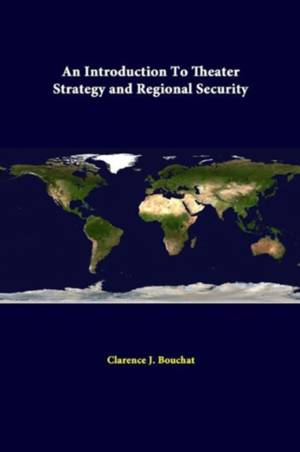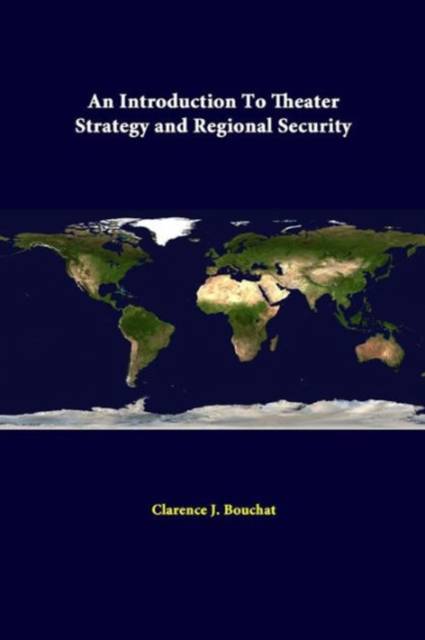
- Afhalen na 1 uur in een winkel met voorraad
- Gratis thuislevering in België vanaf € 30
- Ruim aanbod met 7 miljoen producten
- Afhalen na 1 uur in een winkel met voorraad
- Gratis thuislevering in België vanaf € 30
- Ruim aanbod met 7 miljoen producten
Zoeken
An Introduction To Theater Strategy And Regional Security
Clarence J Bouchat, Strategic Studies Institute
Paperback | Engels
€ 21,45
+ 42 punten
Omschrijving
Lieutenant Colonel Clarence Bouchat conceived this paper while teaching theater strategy on the Distance Education faculty at the U.S. Army War College. As an adjunct member of the resident course teaching team, he also observed resident students wrestle with the subject. While the Strategic Studies Institute does not normally publish curricular materials, this is the second time a subject has been deemed of sufficient importance and utility that it is now offered to our wider audience. Theater strategy and theater security cooperation (TSC) are two of the most important tools available in attaining national security. They offer an effective means for geographic Combatant Commanders to engage other countries, deter aggression, or resolve crises. Despite their importance, however, little current, concise, and comprehensive guidance is available on how they are planned and implemented.
Specificaties
Betrokkenen
- Auteur(s):
- Uitgeverij:
Inhoud
- Aantal bladzijden:
- 62
- Taal:
- Engels
Eigenschappen
- Productcode (EAN):
- 9781312294004
- Verschijningsdatum:
- 20/06/2014
- Uitvoering:
- Paperback
- Formaat:
- Trade paperback (VS)
- Afmetingen:
- 152 mm x 229 mm
- Gewicht:
- 104 g

Alleen bij Standaard Boekhandel
+ 42 punten op je klantenkaart van Standaard Boekhandel
Beoordelingen
We publiceren alleen reviews die voldoen aan de voorwaarden voor reviews. Bekijk onze voorwaarden voor reviews.











